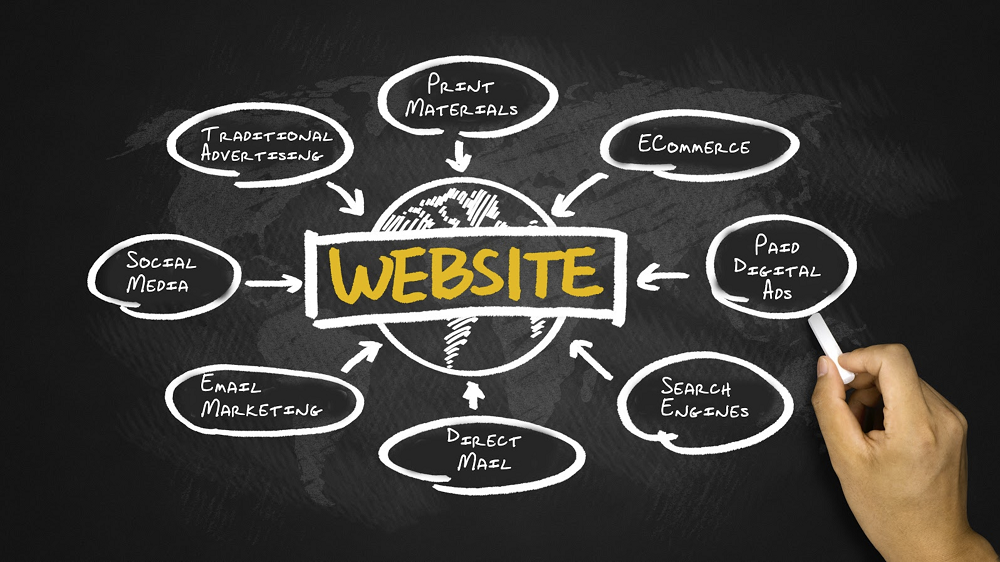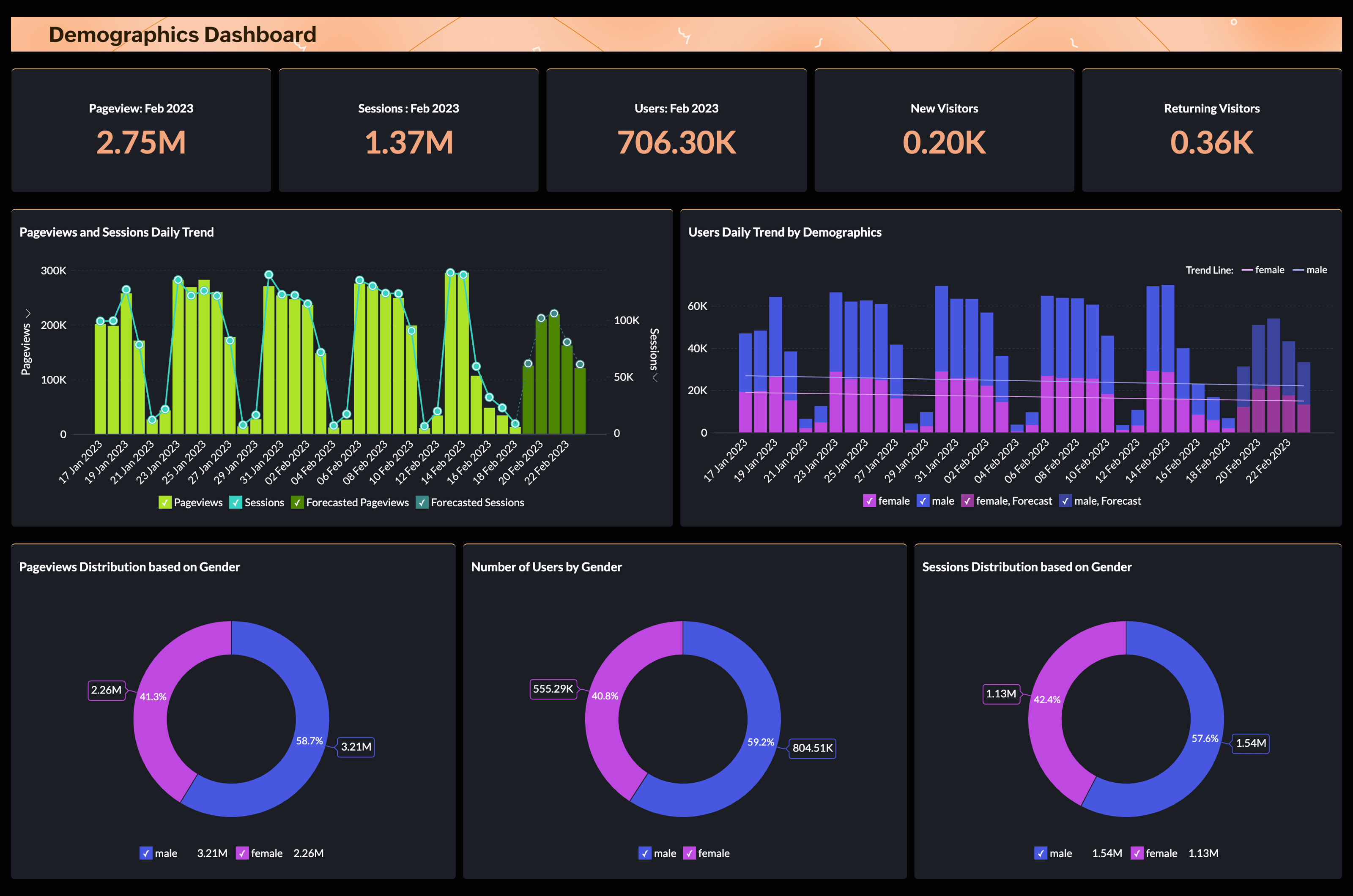Do I Actually Need a Website? The Definitive Answer for 2025
In the dynamic digital landscape of 2025, the question "Do I actually need a website?" has never been more important. As technology continues to evolve and online interactions dominate, having a website is no longer optional—it's essential. Whether you're a small business owner, freelancer, or part of a large corporation, a professional website is a vital tool for establishing an online presence, reaching a global audience, and staying competitive in your industry.
This post will explore why having a website is indispensable in 2025, covering critical areas such as credibility, customer engagement, and growth opportunities.

1: Establishing Credibility and Trust
In today's highly competitive market, credibility is everything. A well-designed, professional website acts as a digital storefront, giving potential customers confidence in your business. Without one, you risk appearing outdated or untrustworthy.
Key Points:
Building Trust: A polished website showcases professionalism, signaling to customers that you're a credible and legitimate business.
Making a Positive First Impression: Your website is often the first interaction customers have with your brand. A user-friendly, visually appealing site can captivate visitors and encourage them to engage further.
Adapting to Consumer Behavior: With most consumers conducting online research before making purchasing decisions, not having a website can result in missed opportunities. Customers expect to find businesses online, and a website ensures you're meeting those expectations.
2: 24/7 Visibility and Accessibility
In a world where consumers expect instant access to information, having a website provides unparalleled visibility and accessibility. Unlike a physical store or traditional office, a website operates around the clock, offering visitors the convenience to learn about your products or services at any time.
Key Points:
Anytime, Anywhere Access: A website ensures your business is available 24/7, catering to customers across different time zones and schedules.
Extended Reach Beyond Business Hours: Capture potential sales and inquiries even when your physical operations are closed, maximizing opportunities.
Expanding Your Audience: An online presence breaks geographical boundaries, allowing you to connect with a global customer base and drive growth.
3: SEO and Increased Traffic
In 2025, visibility in search engine results can make or break a business. A website optimized for search engines is a crucial tool for attracting organic traffic and staying ahead of competitors. Incorporating SEO best practices ensures that your audience can easily find your products or services online.
Key Points:
SEO Optimization: Websites and blogs that use proper keywords, meta descriptions, and internal linking strategies improve their search engine rankings.
Driving Organic Traffic: High-quality, relevant content engages readers and signals to search engines that your site is valuable, resulting in increased visibility.
Sustained Growth Through Content: Regularly updating your website with fresh content keeps it active and helps maintain high rankings over time.
4: Cost-Effective Marketing
A website is one of the most cost-effective marketing tools available. Unlike traditional advertising methods, which can be expensive and have limited reach, a website allows you to target a global audience at a fraction of the cost.
Key Points:
Cost Savings: Compared to print, radio, or TV ads, maintaining a website is far more affordable while offering a broader reach.
Centralized Marketing Hub: Your website serves as the centerpiece for all digital marketing efforts, integrating social media, email campaigns, and paid ads.
Higher ROI: With effective SEO and targeted marketing, websites can generate higher returns on investment by driving traffic and conversions.

5: Competitive Edge
In an increasingly digital-first world, businesses without a website are at a significant disadvantage. Competitors with a strong online presence are more likely to attract and retain customers.
Key Points:
Staying Relevant: A professional website ensures your business remains relevant in a competitive market.
Standing Out: Differentiating your brand through unique design and content helps capture customer attention.
Adapting to Market Trends: Businesses with websites can quickly adapt to digital trends, staying ahead of competitors.
6: Global Reach
A website eliminates geographical barriers, enabling businesses to reach customers across the world. This expanded reach opens up countless opportunities for growth and scalability.
Key Points:
Market Expansion: Tap into international markets without the need for a physical presence.
24/7 Access for Global Customers: Engage customers in different time zones without interruption.
Unlimited Growth Potential: Online accessibility creates opportunities for exponential business growth.
7: Brand Control and Personalization
Unlike social media platforms with limited customization options, a website offers complete control over how your brand is presented. This freedom allows businesses to create a unique and engaging experience for users.
Key Points:
Control Over Brand Identity: Design and content are fully customizable, enabling consistent brand messaging.
Tailored User Experience: Personalize user interactions with targeted content and dynamic features.
No Platform Restrictions: Avoid algorithm changes and platform rules that can limit brand exposure on social media.
8: Data and Insights
Websites offer invaluable data on customer behavior, preferences, and interactions, enabling businesses to make informed decisions and refine their strategies.
Key Points:
User Analytics: Gain insights into user demographics, behavior, and engagement patterns.
Data-Driven Decisions: Use analytics tools to track performance and guide marketing strategies.
Continuous Improvement: Regular analysis helps optimize content, improve user experience, and boost conversions.

Conclusion
In 2025, having a website is more than just an option—it's a strategic necessity. A well-designed website establishes credibility, expands your reach, enhances customer service, and serves as a cost-effective marketing tool. From showcasing expertise to gaining a competitive edge, a professional website is an investment that drives growth, strengthens brand visibility, and fosters long-term success.
Now is the time to prioritize building a professional online presence to stay relevant and competitive in the evolving digital landscape.
FAQ
1. Do I still need a website if I use social media for my business?
Yes! Social media is important, but it has limitations. A website gives you full control over your brand, content, and customer experience—something social media platforms can't offer.
2. Is it expensive to maintain a website?
Website maintenance costs vary, but modern tools make it affordable. Regular updates, security checks, and content refreshes are essential for keeping your site effective and secure.
3. How does a website help with SEO?
Websites optimized for search engines rank higher in search results, making it easier for potential customers to find you. Quality content, keywords, and proper site structure are key factors in SEO.
4. Can a small business really compete online?
Absolutely! A well-designed website levels the playing field, allowing small businesses to reach broader audiences and compete with larger companies.
5. How often should I update my website?
Content updates should be regular—monthly at a minimum. Frequent updates keep your website relevant, improve SEO rankings, and engage returning visitors.
Related Topics
Main benefits of having a website for small businesses.
Ways a website improves customer engagement and loyalty.
Key elements of a well-designed website.
Impact of a website on credibility and trust.
How a website can increase visibility and reach.
Citations
Forbes. "Why Every Business Needs a Website in 2025."
HubSpot. "SEO Best Practices for Modern Websites."
Statista. "Global Online Consumer Behavior Trends."
Moz. "The Importance of Content Marketing in SEO."
Nielsen. "Consumer Trust in Online Business Presence."